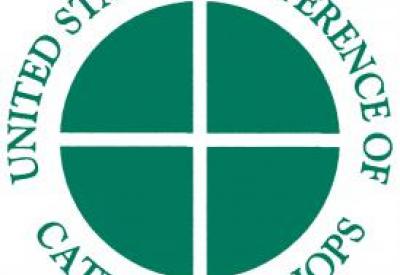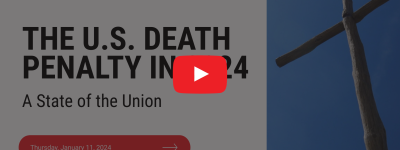
In the middle of 2015, the two chairmen of the Committees on Domestic Justice and Human Development and on Pro-Life Activities co-authored a joint statement stating a recommitment and reminder of the campaign to end the death penalty that the United States Conference of Catholic Bishops instituted 10 years prior. A portion of the statement reads:
Ten years ago, the Catholic bishops of the United States initiated the Catholic Campaign to End the Use of the Death Penalty. Speaking as pastors and teachers, we issued a statement at that time, A Culture of Life and the Penalty of Death, in which we considered the reality of capital punishment in the United States. We urged a prudential examination of the use of the death penalty, with the aim of helping to build “a culture of life in which our nation will no longer try to teach that killing is wrong by killing those who kill. This cycle of violence diminishes all of us.”
We are all sinners, but through the Father’s loving mercy and Jesus’ redeeming sacrifice upon the Cross, we have been offered the gift of life everlasting. The Lord never ceases his loving pursuit of us in our sin and brokenness, offering us the choice of life over death. The use of the death penalty cuts short any prospect for transforming the condemned person’s soul in this life. Catholic opposition to the death penalty, then, is rooted in mercy. It is also eminently pro-life, as it affords every opportunity for conversion, even of the hardened sinner. As followers of Jesus, we have the “inescapable responsibility of choosing to be unconditionally pro-life” (Evangelium Vitae, # 20).
Our Catholic faith affirms our solidarity with and support for victims of crime and their families. We commit ourselves to walk with them and assure them of the Church's compassion and care, ministering to their spiritual, physical and emotional needs in the midst of deep pain and loss. We also acknowledge the inherent human dignity of those who have committed grave harm, affirming that, even as they repay a debt to society, they too should receive compassion and mercy. As we seek to tend to the eternal needs of those who commit serious crimes we must build up a culture of life in matters of justice and punishment.
The Church’s opposition to the death penalty should not be seen as indifference to the sinfulness of crime and attacks on human life, but as an affirmation of the sacredness of all life even for those who have committed the most heinous of crimes. As Archbishop Joseph Naumann of the Archdiocese of Kansas City, whose own father was murdered, recently said: “Our refusal to resort to the death penalty is not because we fail to appreciate the horror of the crime committed, but because we refuse to imitate violent criminals.”
Through our recommitment to work to end the use of the death penalty, we also renew the call for all people of good will to:
1. Pray for victims of crime, those facing execution, and those working in the criminal justice system;
2. Reach out to the families of those affected by violent crime by bringing Christ’s love and compassion;
3. Learn about the Church’s teaching on capital punishment and educate others in this vital area of concern;
4. Advocate for better public policies to protect society and end the use of the death penalty.
The Scriptures remind us: “Blessed are the merciful, for they will be shown mercy” (Lk 5:7). As Christians, we are called to oppose the culture of death by witnessing to something greater and more perfect: a gospel of life, hope, and mercy. To help build a culture of life, capital punishment should be abolished."



